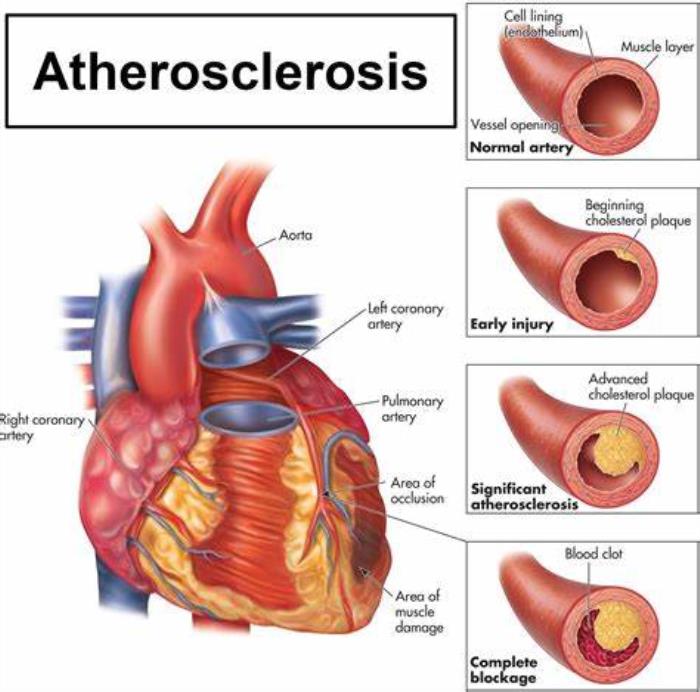Early detection of heart disease is crucial in preventing severe complications and improving overall health outcomes. Identifying heart disease in its initial stages allows for timely intervention, which can significantly reduce the risk of heart attacks, strokes, and other serious cardiovascular issues. By understanding the importance of early detection, individuals can take proactive measures to monitor their heart health and implement necessary lifestyle changes.
Understanding Heart Disease: Types and Risk Factors
Heart disease encompasses various conditions affecting the heart's structure and function, including coronary artery disease, heart failure, arrhythmias, and valvular heart disease. Major risk factors include high blood pressure, high cholesterol levels, diabetes, obesity, smoking, and a sedentary lifestyle. Understanding these types and their associated risk factors can empower individuals to take preventive steps and seek medical advice if they are at risk.
How Heart Disease Develops: The Role of Atherosclerosis
Atherosclerosis is a primary contributor to the development of heart disease. This condition occurs when fatty deposits, known as plaques, accumulate in the artery walls, narrowing them and reducing blood flow to the heart. Over time, atherosclerosis can lead to serious complications, such as heart attacks and strokes, as well as chronic conditions like coronary artery disease. Understanding this process emphasizes the importance of early detection and intervention.

Recognizing the Signs and Symptoms of Heart Disease
Early recognition of heart disease symptoms is vital for prompt treatment. Common signs include chest pain or discomfort, shortness of breath, fatigue, irregular heartbeat, and swelling in the legs or ankles. Some individuals may also experience nausea or lightheadedness. Being aware of these symptoms and seeking medical attention promptly can lead to early diagnosis and more effective management of heart disease.
The Benefits of Early Detection: Preventing Progression
The benefits of early detection of heart disease are substantial. Early identification allows for lifestyle modifications, medication management, and possibly interventional procedures to prevent disease progression. By addressing risk factors early on, individuals can significantly reduce the likelihood of severe cardiovascular events and improve their long-term health outcomes. Moreover, early detection often results in better treatment success and a higher quality of life.
Diagnostic Tools: Tests for Early Heart Disease Detection
Several diagnostic tools are available for the early detection of heart disease. These include blood tests to assess cholesterol and glucose levels, electrocardiograms (ECGs) to monitor heart rhythm, echocardiograms to evaluate heart function, and stress tests to assess the heart's response to physical activity. Each of these tests provides valuable information that can help healthcare providers identify potential heart issues early and tailor appropriate treatment plans.
The Role of Regular Health Screenings in Prevention
Regular health screenings play a pivotal role in the prevention of heart disease. By monitoring key health indicators such as blood pressure, cholesterol levels, and body weight, individuals can stay informed about their cardiovascular health. Healthcare providers can use this information to recommend lifestyle changes or interventions as needed. Incorporating regular check-ups into one’s healthcare routine can lead to early detection of heart disease, ultimately contributing to better heart health and overall wellness.

Understanding Risk Factors: Lifestyle and Genetic Influences
Understanding the risk factors for heart disease is crucial for prevention and management. Lifestyle factors such as diet, physical activity, smoking, and stress play significant roles in heart health. Additionally, genetic influences can predispose individuals to heart disease, making awareness of family history essential. By recognizing these risk factors, individuals can make informed choices that may reduce their risk of developing heart-related issues.
The Impact of Early Lifestyle Changes on Heart Health
Making early lifestyle changes can have a profound impact on heart health. Research shows that adopting a heart-healthy diet, increasing physical activity, and quitting smoking can significantly lower the risk of heart disease. Early intervention not only improves current health but can also prevent the onset of serious conditions, making it vital for individuals to start implementing these changes as soon as possible.
Medication Management: Controlling Risk Factors Early
For individuals at risk of heart disease, effective medication management is essential for controlling risk factors such as high blood pressure, cholesterol, and diabetes. Regular consultations with healthcare providers allow for the timely adjustment of medications to optimize their effectiveness. When combined with lifestyle changes, proper medication management can lead to improved heart health and reduce the likelihood of requiring interventions such as bypass surgery.
The Role of Healthcare Providers in Early Detection
Healthcare providers play a pivotal role in the early detection of heart disease. Routine screenings and assessments can identify risk factors before they lead to serious health issues. Providers can educate patients about lifestyle modifications and create personalized prevention plans. Engaging in open communication with healthcare professionals enables individuals to take proactive steps toward heart health.
How Early Intervention Can Delay or Prevent Bypass Surgery
Early intervention is key in delaying or preventing the need for bypass surgery. By addressing risk factors and implementing lifestyle changes, patients can significantly reduce the progression of coronary artery disease. In many cases, proactive management through diet, exercise, and medication can prevent the blockages that necessitate surgical intervention, resulting in better outcomes and improved quality of life.
Case Studies: Success Stories from Early Detection
Case studies highlighting success stories from early detection underscore the importance of proactive health measures. Individuals who have embraced lifestyle changes and adhered to medical advice often report significant improvements in their heart health. These testimonials serve as powerful reminders of the positive impact that early detection and intervention can have on patients’ lives, encouraging others to take similar actions.

Education and Awareness: Empowering Patients to Seek Help
Education and awareness are critical in empowering patients to seek help for heart health concerns. Informing individuals about the risk factors, symptoms, and preventive measures related to heart disease fosters a proactive approach to health. Community outreach programs, workshops, and online resources can provide valuable information, encouraging individuals to be vigilant about their heart health and seek medical advice when needed.
Monitoring Heart Health: Keeping Track of Changes
Regular monitoring of heart health is essential for early detection and management of potential issues. Individuals should be aware of their blood pressure, cholesterol levels, and body weight, as well as any symptoms such as chest pain or shortness of breath. Keeping track of these changes enables timely intervention and helps healthcare providers tailor treatment plans effectively.
The Connection Between Early Detection and Quality of Life
There is a strong connection between early detection of heart disease and improved quality of life. Early intervention not only reduces the risk of serious health complications but also enhances overall well-being. Patients who actively manage their heart health through lifestyle changes and regular screenings often experience greater physical and emotional wellness, leading to a more fulfilling life.
Encouraging Family History Discussion: A Key to Prevention
Encouraging discussions about family history is a vital step in preventing heart disease. Understanding one’s genetic predisposition can guide individuals in taking proactive measures to manage their risk factors. Families should engage in open conversations about health history, which can empower members to make informed decisions about their heart health and seek early interventions when necessary.
Community Resources for Heart Health Awareness
Community resources play a significant role in promoting heart health awareness. Local health organizations, support groups, and educational programs can provide valuable information and support for individuals looking to improve their heart health. Access to resources such as nutritional workshops, exercise classes, and health screenings can empower individuals to take charge of their heart health and encourage community-wide initiatives aimed at prevention.
Long-Term Benefits of Early Detection: A Healthier Future
The long-term benefits of early detection are substantial, paving the way for a healthier future. Individuals who prioritize heart health through early intervention are more likely to enjoy a better quality of life, reduced healthcare costs, and a lower risk of serious complications. Investing time and effort into preventive measures not only enhances individual health but also contributes to a healthier community overall.
How Heart Bypass Surgery Improves Heart Function
Learn how heart bypass surgery enhances heart function. This section explains the procedure's mechanics, how it reroutes blood flow around blocked arteries, and the resultant improvements in oxygen delivery to the heart, leading to reduced symptoms and improved quality of life.
Managing Blood Pressure and Cholesterol Before Heart Bypass Surgery
Understand the importance of managing blood pressure and cholesterol levels prior to heart bypass surgery. This section covers lifestyle modifications and medications that can help stabilize these factors, thereby enhancing surgical outcomes and reducing potential complications.
Conclusion: Prioritizing Heart Health Through Early Detection
Prioritizing heart health through early detection is essential for reducing the risk of heart disease and improving overall well-being. By understanding risk factors, making lifestyle changes, and seeking regular screenings, individuals can take proactive steps toward maintaining heart health. Together, we can foster a culture of awareness and prevention that empowers everyone to lead healthier, happier lives.
Best Heart Bypass Surgery in India
The Best Heart Bypass Surgery in India is a critical procedure that reroutes blood flow around blocked arteries, improving blood supply to the heart and enhancing patient health and quality of life.
Best Heart Bypass Surgery Hospitals in India
The best heart bypass surgery hospitals in india feature advanced medical facilities and expert cardiology teams, providing comprehensive care from diagnosis to post-surgery recovery for optimal outcomes.
Heart Bypass Surgery Cost in India
The heart bypass surgery cost in india is competitively priced, ensuring patients receive high-quality treatment with transparent pricing and affordable care options.
Best Heart Bypass Surgeons in India
The Best Heart Bypass Surgeons in India are skilled and experienced professionals, committed to delivering personalized care and achieving the best possible surgical outcomes for heart patients.
FAQ
Why is early detection crucial for heart disease?
Early detection allows for timely intervention, which can prevent the progression of heart disease and reduce the risk of serious complications.
What are the common signs of heart disease to watch for?
Common signs include chest pain, shortness of breath, fatigue, and irregular heartbeat. It's essential to seek medical advice if any of these symptoms arise.
How can regular screenings help in preventing heart disease?
Regular screenings help identify risk factors such as high blood pressure and cholesterol levels early, allowing for proactive management and lifestyle changes.
What lifestyle changes should I consider if I have risk factors?
Consider adopting a heart-healthy diet, increasing physical activity, quitting smoking, and managing stress to help control risk factors effectively.
How does early detection influence treatment options?
Early detection can provide more treatment options, including lifestyle changes and medication, potentially avoiding more invasive procedures like surgery.